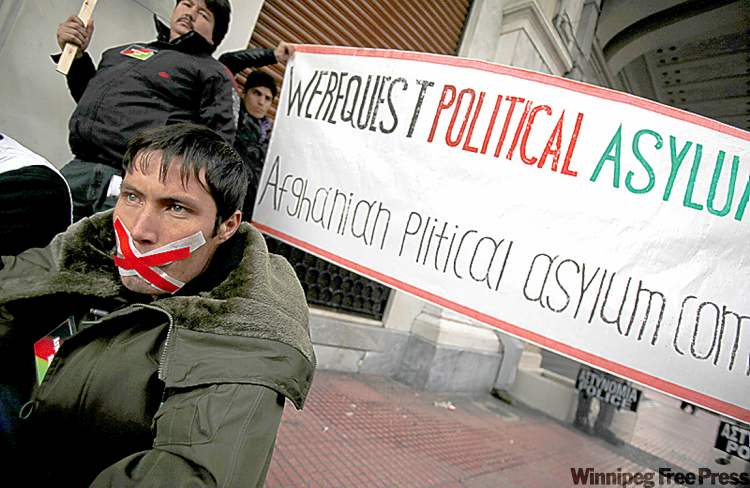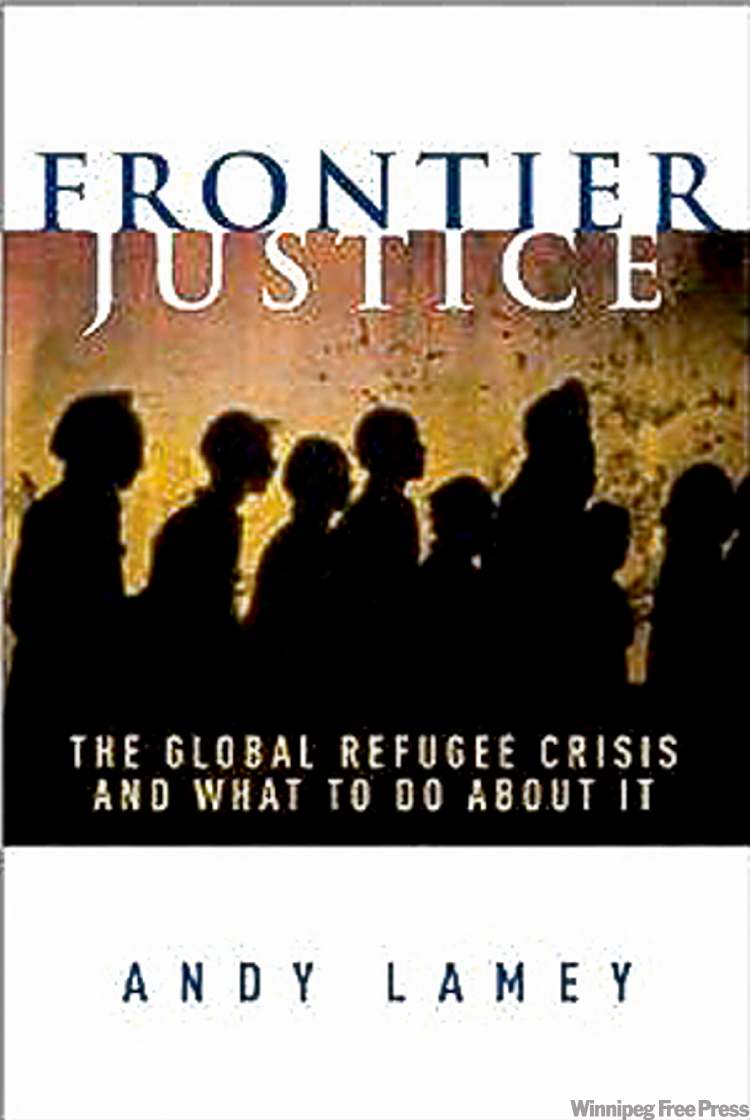A persuasive argument on refugees
Advertisement
Read this article for free:
or
Already have an account? Log in here »
To continue reading, please subscribe:
Monthly Digital Subscription
$1 per week for 24 weeks*
- Enjoy unlimited reading on winnipegfreepress.com
- Read the E-Edition, our digital replica newspaper
- Access News Break, our award-winning app
- Play interactive puzzles
*Billed as $4.00 plus GST every four weeks. After 24 weeks, price increases to the regular rate of $19.00 plus GST every four weeks. Offer available to new and qualified returning subscribers only. Cancel any time.
Monthly Digital Subscription
$4.75/week*
- Enjoy unlimited reading on winnipegfreepress.com
- Read the E-Edition, our digital replica newspaper
- Access News Break, our award-winning app
- Play interactive puzzles
*Billed as $19 plus GST every four weeks. Cancel any time.
To continue reading, please subscribe:
Add Free Press access to your Brandon Sun subscription for only an additional
$1 for the first 4 weeks*
*Your next subscription payment will increase by $1.00 and you will be charged $16.99 plus GST for four weeks. After four weeks, your payment will increase to $23.99 plus GST every four weeks.
Read unlimited articles for free today:
or
Already have an account? Log in here »
Hey there, time traveller!
This article was published 09/04/2011 (5313 days ago), so information in it may no longer be current.
Frontier Justice
The Global Refugee Crisis and What to Do About It
By Andy Lamey

Random House, 396 pages, $35
The people who are written about in this well-researched polemic show up at land border crossings, or sit at anchor in harbours like Vancouver, or simply beach their flimsy craft along sandy foreign shores.
They are displaced persons or asylum seekers, hoping for refuge in foreign lands, and today they pose a particularly vexing problem because public sentiment sees a potential terrorist in every refugee.
Toronto journalist Andy Lamey has produced a persuasive argument for changes to refugee systems around the world.
His subtitle could be misleading were it not for a brief preface emphasizing that the refugees he refers to are only those found at the frontiers or borders of liberal states like western democracies; he does not include people lingering in refugee camps in the developing world.
By analyzing tactics sovereign European countries use, and by relating personal stories from refugees detained at Guantanamo and similar detention centres supposedly protecting western countries, Lamey reveals systems where “refugees who arrived there were dealt with harshly to send a message to future refugees not to come.”
When the United Nations drafted the Universal Declaration of Human Rights in 1948, its lofty goals were inspired by the Holocaust and the notion that sovereign states would extend basic human rights to all people showing up at their borders.
But, as Lamey writes, “If justice for refugees has to wait for a change on the scale of getting rid of national sovereignty, justice will be a long time coming.”
He estimates there are more than 11 million refugees worldwide today, and if people currently displaced within their own countries (like Sudan) are included, “the total rises to 31 million.”
Lamey contrasts American reluctance to process Haitian boat people fleeing a dictatorial regime in the 1990s with the earlier swift acceptance of Cuban refugees in the 1960s and ’70s and the quick asylum granted to Hungarian refugees in 1956. He suggests that factors like ethnicity, colour, religion and ideology often trump human rights.
Lamey also turns to other academics to strengthen his plea for change.

Hannah Arendt, a Jewish survivor of Nazi persecution, and author of The Origins of Totalitarianism, argued that the rights of citizens and the rights of refugees would always be viewed differently within the borders of sovereign countries, while Italy’s Giorgi Agamben believes modern sovereign states are incapable of respecting the moral worth of human beings.
At the other extreme, Matthew Gibney, an Australian teaching at Oxford, feels wealthy states should simply have open borders for refugees.
Lamey tries to leaven his scholarly approach with a human touch. He relates how Mohammed Al Ghazzi, an Iraqi businessman fleeing Saddam Hussein’s Iraqi police state in the 1990s, sought asylum in Australia, unaware that between 1992 and 2005, refugees arriving there “were known to be incarcerated longer than serious criminals.”
Examining Canada’s small, yet comparatively significant part in alleviating the refugee crisis, Lamey uses several humanitarian arguments for allowing refugees even easier entry into Canada. He argues why the current model could be a blueprint for other nations to use and improve on.
He dispels the myth that had headlines in the U.S. and Canada after 9/11 proclaiming us “a Club Med for world terrorists” by using data from CSIS showing how Canada’s security agency effectively uses “security certificates” against non-citizens, giving the government sweeping powers of detention.
“No terrorist who has come through Canada’s refugee system has been able to carry out an act of terror in North America,” he concludes.
Lamey’s research, intended to be a springboard for universal change, may ironically serve as a confirmation that the systems are working.
Joseph Hnatiuk is a retired teacher in Winnipeg.

